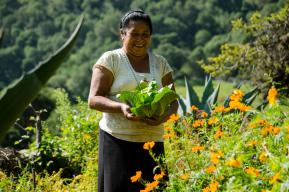Suzette Zayden is the Belize International Film Festival Director. Despite COVID-19 she has been very active in the last months, promoting virtual events and discussions about the Caribbean cinema, one of her passions. From her home in Belize capital, she remembered how the International School of Cinema of San Antonio de los Baños in Cuba, changed her life.
The School is part of the Cubans institutions of the Regional Cultural Training Hub of Transcultura: integrating Cuba, the Caribbean and the European Union trough Culture and Creativity. The Programme is implemented by Regional Office for Culture in Latin America and the Caribbean of UNESCO and funded by the European Union.
How did you get to study in the EICTV?
I found out about the EICTV in 1993 when a scholarship to the school was offered to a colleague of mine. He was not interested but he shared the brochures with me after. I was intrigued with the involvement of famous filmmakers like Robert Redford, Francis Ford Coppola and the only name I knew then from Latin America at the time, Colombian writer, Gabriel Garcia Marquez in a school on a Caribbean island.
Even though I was working as a producer for TV ads at the station, I was starting to realize TV and film were not the same. The brochures from the EICTV convinced me that it would be the perfect place to learn about film and help my Spanish. After a process with some obstacles my application was successful and started my studies.
How did you remember those days?
Back then it had seemed strange to be at a school in the middle of the countryside, far away from the big city of Havana. But in retrospect, it was a great plan. With everyone not able to go anywhere else at nights, we experienced two amazing years of unique networking with filmmakers from around the world. Something that would never have been possible if we were in the middle of a busy city like Havana.
You are one of the most important voices for cinema in the region, how much are from EICTV in your career?
Beside Belize, I’ve had the chance to live and study TV in the US, Film Production in Cuba and Screenwriting in Norway. My experiences in each of these countries have all helped to shape who I am, but without a doubt my time at the EICTV in Cuba was the most crucial to my career.
Later experiences would connect me to like-minded individuals in the region and my perspective has since became more regional. Throughout it all though, the model of the Foundation of the New Latin American Cinema (FNCLA) and its three projects (archive, festival, school) is where I draw my inspiration from.
What makes EICTV different from other cinema schools?
The EICTV markets itself as an antischolastic film school with a full 24-hour film immersion experience. For someone who wants to learn all about film, the EICTV is a dream come true. Every single class offered is about film whether it’s the history of film, scriptwriting techniques, directing actors, the role of the producer or editing etc., with no disruption of your attention by unrelated core subjects. And no traditional written quizzes or tests. The only tests that matter are practical exercises done in teams, which, if you think about it, makes perfect sense. The only way to be a filmmaker is to make a film and then make another.
I would like to talk about the contribution that Belize International Film Festival has made. What it makes it necessary?
The Belize International Film Festival (BelizeIFF) is a cultural space that promotes the art of film while incubating the Belizean film industry. It has contributed significantly to the appreciation of world cultures through film, to the education of Belizean filmmakers through workshops conducted by visiting filmmakers, and to networking opportunities that have led to collaborations such as the production of Belize’s first dramatic television series.
While its goal is to promote the development of cinema in Belize, the Caribbean and Central American region, BelizeIFF is very much an international festival with a focus on films showing the interaction of culture.
What would be your message to young artists regarding the reputation of the school?
Attending the EICTV is a once in a lifetime opportunity for film students, especially those from the Caribbean region. Not only does it give you a fantastic opportunity to learn about filmmaking from working filmmakers, it also creates an environment for you to forge strong connections with a new generation of filmmakers, your generation. Many of whom, you will most likely go on to make future films with.
From you point of view as an artist, what is Transcultura?
For me Transcultura is the exchange and adaptation of ideas and the transfer of knowledge between cultures from different countries. It is only through exposure we can learn new things. And in order to be exposed we need to travel. I sincerely believe that the only way an artist can grow is through their own personal experiences, not through other people’s stories.













